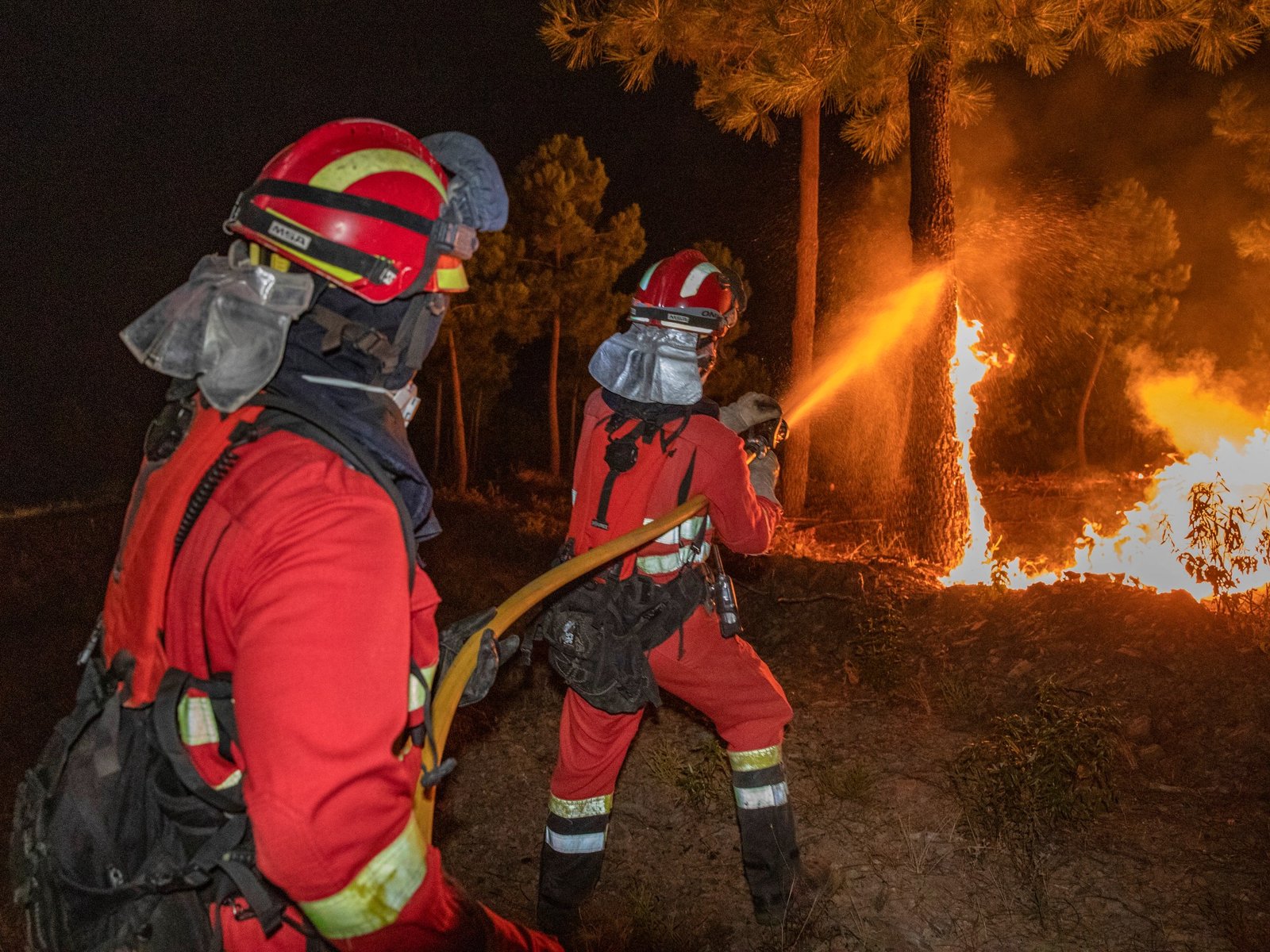Historic Site in Spain Faces Wildfire Threat Amid Record Heat Wave
A fierce heatwave is currently sweeping across Europe, pushing temperatures to unprecedented levels of 43 degrees Celsius (109.4 degrees Fahrenheit). This surge in heat has ignited wildfires, resulting in urgent evacuations as the devastating effects of climate change become increasingly evident.
On Monday, firefighters in northwestern Spain raced against time to control a wildfire that has already affected a UNESCO World Heritage Site, the ancient Roman mining area of Las Medulas, leading to the evacuation of hundreds of residents.
Juan Carlos Suarez-Quinones, the Regional Environment Minister, reported that firefighting efforts faced numerous challenges, including soaring temperatures and fierce winds reaching 40 kilometers per hour (25 miles per hour). The extreme heat and turbulent winds catalyzed “fire whirls,” a phenomenon that occurs when fire rapidly moves from a confined space into a more open, oxygen-rich area. “This is a dangerous situation,” he warned.
So far, four individuals, including two firefighters, have sustained minor injuries. Suarez-Quinones emphasized that residents would not be allowed to return home until their safety is absolutely assured, noting that around 700 people remain displaced.
Authorities plan to evaluate the damage to this famous Roman gold-mining site, known for its stunning red landscapes, once the fire is completely under control.
Over the border in Portugal, approximately 700 firefighters are tackling a blaze that erupted on Saturday in Trancoso, situated around 350 kilometers (200 miles) northeast of Lisbon.
Meanwhile, Meteo-France has issued a red alert for 12 departments, marking the highest level of alert, as exceptional heat stretches from the Atlantic coast to the Mediterranean regions. Agricultural climatologist Serge Zaka has stated, “Do not be misled—this is not just typical summer heat; it’s unprecedented and alarming.” The red alert has been issued only eight times since its establishment in 2004.
In addition, three significant wildfires are raging along the borders of Greece and Turkey, including one near Strumyani that reignited after being contained for three weeks.
Bulgaria anticipates temperatures to surpass 40 degrees Celsius (104 degrees Fahrenheit) on Monday, with maximum fire hazard alerts in effect. Nearly 200 fires have been reported, with most being localized and extinguished, although the conditions remain “highly challenging,” according to Alexander Dzhartov, the head of Bulgaria’s national fire safety unit.
Hungary recorded a new national high of 39.9 degrees Celsius (104 degrees Fahrenheit) in its southeast on Sunday, breaking a record set in 1948. The capital, Budapest, also experienced a new city record of 38.7 degrees Celsius (101.6 degrees Fahrenheit).
In Albania, wildfires have claimed several homes as firefighters work tirelessly in oppressive conditions. The Ministry of Defence reported that despite their efforts to control nearly 40 fires that flared up within a single day, more than a dozen remain active.
In Croatia, approximately 150 firefighters labored through the night to protect homes from a fire near the port city of Split.

